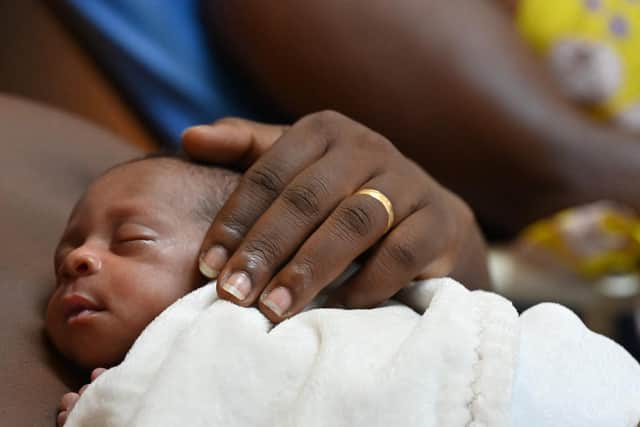Black women are nearly four times more likely to die in pregnancy than white women. This shocking statistic must change – Dr Gwenetta Curry
On March 20, Kwisa, an organisation of women of African descent in Scotland, held an official event at the 68th annual Commission on the Status of Women (CSW) meeting, the United Nation's largest annual gathering about gender equality and women’s empowerment, held in Scotland for the first time.
This year’s theme was “accelerating the achievement of gender equality and the empowerment of all women and girls by addressing poverty and strengthening institutions and financing with a gender perspective”. These events aim to have governments, civil society organisations, experts, and activists from across the world come together and agree on actions to improve gender equality.
Advertisement
Hide AdAdvertisement
Hide AdKwisa’s parallel event, “Disrupting the status quo on co-creation with women of African descent”, held in partnership with NHS Lothian and the University of Edinburgh, focussed on health and economic disparities experienced by Black women. Panellists highlighted the need for ‘co-creation’, meaning working with communities when decisions are being made about them.


Scottish Government officials outlined current work on maternal health where they collaborate with community organisations to better understand the needs of women from diverse backgrounds. They highlighted a recent report that found Black women were 3.8 times more likely to die and Asian women were 1.8 times more likely to die than White women during or shortly after pregnancy.
White, male, eurocentric
In November of 2023, Kwisa and healthcare association Maternity Voices launched a pilot project called “Nothing about us without us”, focusing on the experiences of women of African descent in maternity care in NHS Lothian.
Dr Isioma Okolo, a consultant obstetrician and gynaecologist, and convener of NAUWU, a community initiative between Kwisa and NHS Lothian aiming to promote safe, positive, and respectful births for Black women in the area, said that the theme of the CSW event was “foundational” to NAUWU’s work, adding: “The only reason Black women, pregnant people, and babies experience adverse outcomes is that our systems are set to a default that is white, male, eurocentric, cis-gendered, heterosexual, etc. To change this, we must address these systems. We hope to disrupt the status quo of how Black women and pregnant people are engaged in the delivery and design of their care – by promoting partnerships that value the expertise within Black communities when it comes to diverse ways of knowing, doing, and being around pregnancy and birth. And by showcasing the full story of Black motherhood, beyond negative statistics which encompass Black joy amidst adversity. I'm hopeful this is the beginning of a long-awaited journey towards positive action.”
Including Black voices
Another panellist, Vicky Nyanga-Ndiaye, founder and chief executive of womanist charity Project Esperanza stated: "Cultural illiteracy can hinder important progress for Black people and Black communities, and the ‘powers that be’ in social and community agencies in Scotland should prioritise education about the diversity of cultures in Scotland. It is also a must to respect Black thought and Black expertise, and that respect will be evident through the efforts made to include the Black voices of our communities at the onset of discussions about Black people in this country."
This event brought together people from across sectors to work together to create and promote much-needed sustainable change to improve health outcomes for Black women and families in Scotland.
Dr Gwenetta Curry is an Edinburgh University reader in race, ethnicity and health
Comments
Want to join the conversation? Please or to comment on this article.
